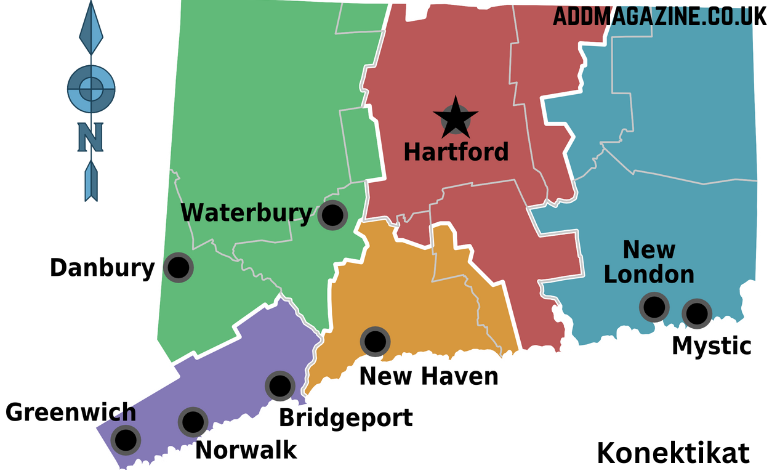Securing a self-employment visa is an important turning point for the self-workers, freelancers and business owners who wish to live and work in the Netherlands. This guide explains the requirements, the application procedure, and strategic options, including special treaties such as the DAFT Visa route (for U.S. citizens) and other niche paths. It also demonstrates how Immigration Netherlands Services, or INLS, can help make this trip easier.
Choosing the Netherlands for self-employment
The Netherlands is a popular destination for self-employed professionals thanks to:
- A strong, open economy and a high standard of living
- Excellent infrastructure, connectivity, and digital readiness
- Attractive tax incentives (for example, the 30% ruling)
- A stable legal and regulatory environment for businesses
- A culture of innovation, start-ups, and international trade
But to legally live and work independently in the Netherlands (if you’re a non-EU/EEA national), you cannot simply show up; you’ll need to secure the proper residence permit. That’s where this guide becomes relevant.
Some common paths for the Self-Employment Permit
Permit for General Self-Employment and Entrepreneurship
Most non-EU / non-EEA nationals must follow the general self-employed route. Under this path:
- The IND (Immigration and Naturalisation Service) assesses whether your proposed business is of “essential interest” to the Dutch economy.
- Your business plan, experience, and the added value your enterprise brings will be scored.
- You must register with the Dutch Chamber of Commerce (KvK) and meet the necessary professional permit or licensing requirements.
- You must show you are financially viable — that your business can support you (and potentially dependents).
- The permit is typically valid for up to 2 years and can be renewed if you maintain compliance.
This general route is more demanding because the government wants to ensure that your business genuinely contributes to the Dutch economy (not just taking a “backdoor” route to residency).
Ways for Special Treaties
The DAFT Visa (Dutch-American Friendship Treaty)
If you hold U.S. citizenship, you might qualify under the DAFT Visa route, which is more flexible than the standard path. Under DAFT:
- You are exempt from the usual points-based assessment of your business.
- You must deposit a minimum of €4,500 into your Dutch business bank account.
- Register your business (KvK), prove you hold U.S. nationality, and meet other standard requirements.
- The initial DAFT permit is typically granted for two years, with the possibility of renewal.
- You are restricted to self-employment (i.e., you cannot have a regular salaried job under the DAFT permit).
Because of its streamlined nature, many U.S. freelancers opt for DAFT when they plan to relocate to the Netherlands.
The Chavez Visa
While not an officially recognized Dutch visa category (as of the widely accessible sources), sometimes in the immigration advisory world, the term Chavez Visa is used colloquially or internally to refer to niche or strategy-based routes (e.g. for Latin American entrepreneurs). If INLS uses that term, it may refer to a customized or negotiated path handled by migration law firms or treaty possibilities. You should consult INLS directly to clarify what “Chavez Visa” refers to in their services. (Note: Because this is not widely documented in public sources, I caution you to verify directly with INLS.). Interestingly, much like how the digital product passport promotes transparency and traceability in the business world, understanding visa pathways clearly ensures compliance and informed decision-making for applicants.
Criteria and the basic needs
Certification and enrollment
- You must register your business with the Dutch Chamber of Commerce (KvK).
- If your profession requires a license or membership (e.g. certain regulated professions), you must acquire those permits.
Economic benefit and company plan
- Provide a detailed business plan showing market analysis, revenue forecasts, client acquisition plans, and sustainability.
- The IND or RVO (Netherlands Enterprise Agency) will assess whether your self-employed activity is of “essential interest” to the Netherlands.
- You may need client letters, contracts or letters of intent (commissions) from Dutch clients to prove demand.
Financial safety
- Demonstrate that your business can generate sufficient income to support you (and any dependents).
- For DAFT, maintain a deposit of €4,500 in a Dutch business bank account.
- Maintain cash flow, financial statements, bookkeeping, and proper accounting.
Safety of society and health insurance
- You must have adequate Dutch health insurance once your residence permit is granted.
- You will also be subject to Dutch taxation and social security laws (subject to rules and treaties).
Procedure and legal requirements
- Valid passport and, when applicable, apostilled and translated documents.
- Biometric data submission (fingerprints, photo) during the IND application.
- If applying from outside the Netherlands, you may need a provisional visa (MVV) concurrently.
- Pay the application fees (e.g. for many self-employment applications, €405)
- The IND decision period is usually 90 days (with the possibility of extension).
Procedure for the application
Below is a high-level roadmap you (or INLS on your behalf) might follow:
- Initial guidance and assessment
Evaluate your eligibility, risks, and optimal route (general permit, DAFT, niche path). - Collect your document
Gather passport, business plan, contracts/letters of intent, financial statements, registrations, translations, apostilles, etc. - Registration with the company
Register your enterprise with the KvK and, if needed, obtain professional permits. - Create an IND application
Submit application (often combined with MVV if outside NL).
Under DAFT, the procedure is expedited and sometimes skips the points assessment.
Pay the application fees. - Procedure of the embassy and biometric
As needed, schedule biometric appointments and embassy visits for visa stickers.
Collect your residence permit once approved. - BSN and registration with the municipal
Once in the Netherlands, to obtain your Dutch citizen service number (BSN), which is required for banking, health care, and taxes, register with your local government. - Conformity and launch operations
Open a Dutch bank account (if not done), maintain required capital (for DAFT), begin invoicing, file VAT, income tax, etc. - Extending or renewing
Before the permit expires, apply for renewal (if all conditions are met). Over time, you may be eligible for permanent residence or long-term status.
Pros and cons
Benefits
- Legal ability to live and work freely as a self-employed professional.
- Access to Dutch markets, clients, and EU networks.
- Possibility to bring your spouse, registered partner, or minor children under your permit (subject to conditions).
- Tax incentives like the 30% ruling (if applicable).
- Stability and predictability of the Dutch legal environment.
Barriers and danger
- Meeting the “economic value / essential interest” criteria under the general route can be difficult.
- Maintaining financial viability in early years can be tough, especially in a new market.
- For DAFT holders, no regular salaried employment is allowed — only freelancing or self-employed contracts. Reddit+1
- Strict compliance with Dutch tax, bookkeeping, legal, and insurance obligations.
- If your “Chavez Visa” or niche route is not well defined in law, you may face legal uncertainties — emphasize consultation with INLS.
- Applications can be delayed or rejected if documentation or business planning is weak.
Help with the INLS
INLS, being a specialist immigration service for the Netherlands, can provide full support for your self-employment visa journey:
- Assess which visa route fits your profile (general route, DAFT, or their proprietary “Chavez Visa”)
- Advise on which business structure is best (sole proprietorship / eenmanszaak, B.V., etc.)
- Assist with drafting a strong business plan tailored to IND / RVO criteria
- Help with preparing, translating, legalizing, and organizing supporting documents
- Interface with the IND, embassies, municipalities, and other Dutch authorities
- Monitor deadlines, renewals, and compliance obligations
- Provide ongoing support (taxation, accounting, permit conversions, family reunification)
By engaging INLS early, you reduce the risk of mistakes or omissions that could lead to delays or rejection.
Some tips for an effective application
- Start early and leave buffer time—some processes take weeks or months.
- Use real Dutch client letters/contracts/letters of intent to show market demand.
- Maintain financial discipline and show clear revenue forecasts.
- Keep all documents well organized, apostilled, translated, and certified as needed.
- If you are a U.S. citizen, strongly consider the DAFT route for its streamlined advantages.
- If INLS describes a “Chavez Visa,” ask them exactly what legal basis it has and how reliable it is.
- Once in the Netherlands, stay compliant with bookkeeping, taxes, health insurance, and reporting obligations.
- In case of permit refusal, be prepared to appeal or adjust and reapply with INLS guidance.
Conclusion
In the Netherlands, freelancers and business owners with self-employment visas have a powerful opportunity to build their life and work in Europe’s most dynamic environment. The key is thorough planning, solid documentation, and strategic direction, regardless of whether you want to use the standard self-employed permit route or one of the unique routes like the DAFT Visa.
In your journey, the INLS website can be your partner, helping you choose the right path, getting your paperwork ready, sending it to the appropriate authorities, and making sure it complies when you arrive




